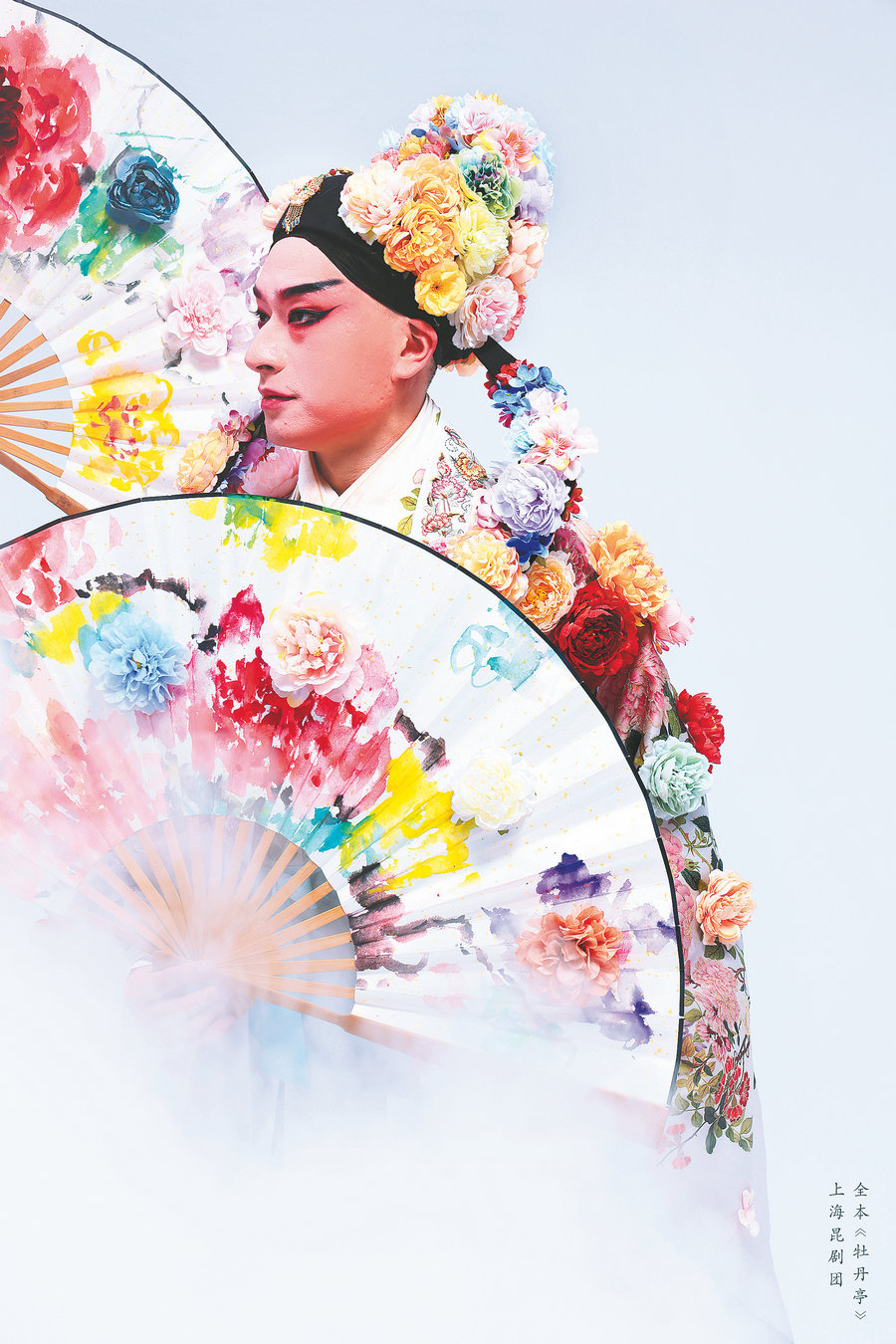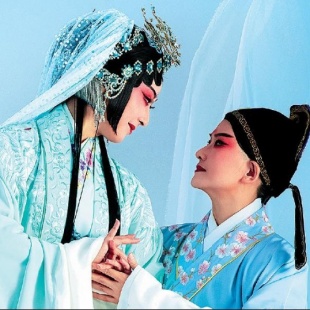Kunqu comes alive


Growing fan base
A recent, marathon production of The Peony Pavilion by the Shanghai Kunqu Opera Troupe — 55 acts, spanning eight hours in total — has also made headlines. From March 8 to 10, the production was staged at the China National Opera House, with tickets selling out in a few days.
It was the first time that the renowned Shanghai company had presented The Peony Pavilion in its entirety.
"It was a huge challenge for the whole team from the troupe. For the audience, it was a rare theater experience," says Guo Xiaonan, director of the show.
Hu Weilu, an actress in her early 30s, plays the leading role in the show. "When I started my training as a Kunqu Opera performer in 1999, there were few shows and few people in the audiences. I performed whenever I could, paid or not, hoping that one day I could experience the real stage," she says.
"Now, we have lots of fans. Some of them are very enthusiastic, taking photos with us and following us as we tour around the country," says Hu.
One fan, Chen Guangli, 36, who was born in Hangzhou, Zhejiang province, and now works and lives in Beijing, bought tickets for the three-day performance immediately after she learned about the performance via social media.
"It's a once-in-a-lifetime opportunity. I have watched a few acts from The Peony Pavilion before, but they are not enough to get a full sense of the masterpiece," says Chen.
Fang Qian, a student at Capital Normal University majoring in world history, is also a big fan of Kunqu Opera.
"What intrigued me about Kunqu Opera was not only its classic beauty, but also the artists, who have to train hard to master a whole range of skills, like singing, dancing and martial arts," says the 20-year-old.
Since she watched her first Kunqu Opera performance in 2018, Fang, who was born and raised in Beijing, has been learning about Kunqu Opera and sharing it with her friends. She is the head of the university's Kunqu Opera community, which has over 100 members and holds activities twice a week.
"Kunqu Opera is like a seed that has been planted. The more I learn about it, the more I expand my knowledge about other aspects of traditional Chinese culture, such as literature, calligraphy, music and painting. It's like a full circle, allowing me to explore the roots of my culture," Fang says.
The ancient art form has also built up a fan base outside China, thanks to devoted artists, such as Zhang Jun, who has made a name for himself interpreting Western classics through the prism of Kunqu Opera.
In 2016, he put on a one-man show, titled I, Hamlet, a Kunqu-inspired adaptation of Shakespeare's famous play, in London and New York, winning critical acclaim among overseas audiences.
In 2019, he also performed with pianist Martha Argerich at a concert in Hamburg, Germany, featuring arias from The Peony Pavilion and pianist Sergei Babayan's arrangement of 12 movements from composer Sergey Prokofiev's ballet version of Romeo and Juliet.





































